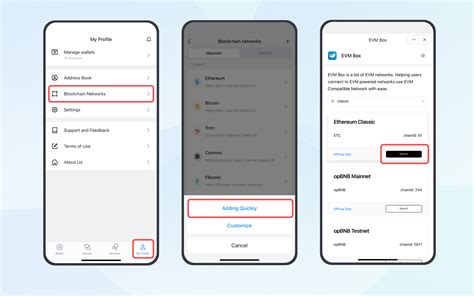Configuring Bitcoin on Linux: Customizing Wallet Location
Bitcoin’s native wallet software, also known as Core, provides a secure way to store and manage your Bitcoins. However, if you’re looking for more flexibility or control over how your Bitcoin data is stored, you can customize the location of your wallet. In this article, we’ll explore how to configure Bitcoin on Linux (specifically Ubuntu) with a custom wallet location.
Why Set Up a Custom Wallet Location?
Before we dive into the configuration process, let’s consider why you might want to set up a custom wallet location:
- Security

: By choosing a secure location outside of the default
~/.bitcoinfolder, you can reduce the risk of your Bitcoin data being compromised or exposed.
- Data Backup: A separate location for storing your Bitcoin data makes it easier to back up and restore your funds in case something goes wrong.
Configuring Bitcoin with a Custom Wallet Location
To configure Bitcoin on Linux (Ubuntu) with a custom wallet location, you’ll need to edit the ~/.bitcoin/config file. This is a hidden file that’s not visible in most text editors. Here are the steps:
- Open the Terminal: Open a terminal on your Ubuntu system.
- Navigate to the Bitcoin Directory
: Change into the
/usr/bin/bitcoindirectory, which is usually located at/usr/bin/bitcoin-*.deb. This might vary depending on your Ubuntu installation and package manager (e.g., apt-get).
- Edit the
configFile: Run the following command to open the~/.bitcoin/configfile in your favorite text editor:
nano ~/.bitcoin/config
- Add the Custom Wallet Location: In the
configfile, add a new line with the following format:
[wallet]
directory = /path/to/your/wallet/directory
enable = true
Replace /path/to/your/wallet/directory with the desired location where you want to store your Bitcoin data. The [wallet] section is optional, but it’s used to specify additional wallet settings.
Tips and Variations
- If you’re using a newer version of Ubuntu (e.g., 18.04), you might need to use
sudo nanoinstead of regularnano.
- You can also add the custom wallet location to the
/etc/bitcoin/configfile, which is used by the system-wide Bitcoin configuration.
- To avoid writing to the default
~/.bitcoinfolder, you can specify a different directory in the[wallet]section using thedirectoryoption.
Conclusion
Configuring Bitcoin on Linux (Ubuntu) with a custom wallet location offers more control over your data and security. By following these steps, you can secure your Bitcoin data by choosing a trusted location outside of the default folder. Remember to replace /path/to/your/wallet/directory with your desired location when setting up your custom wallet configuration.
